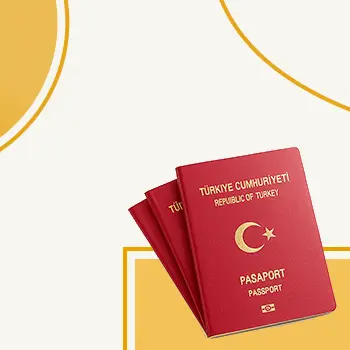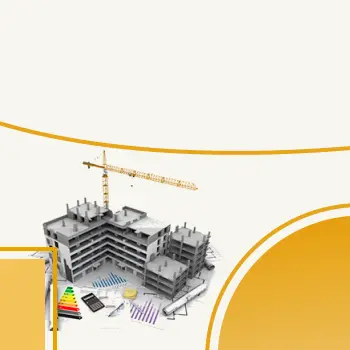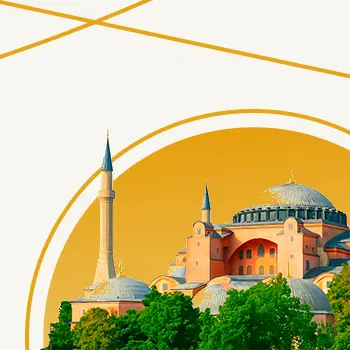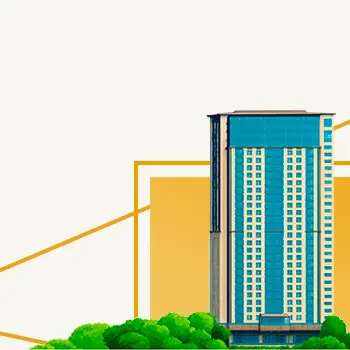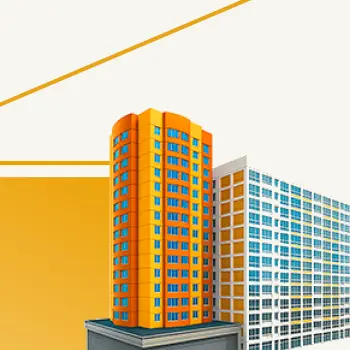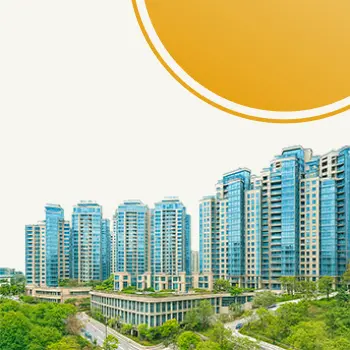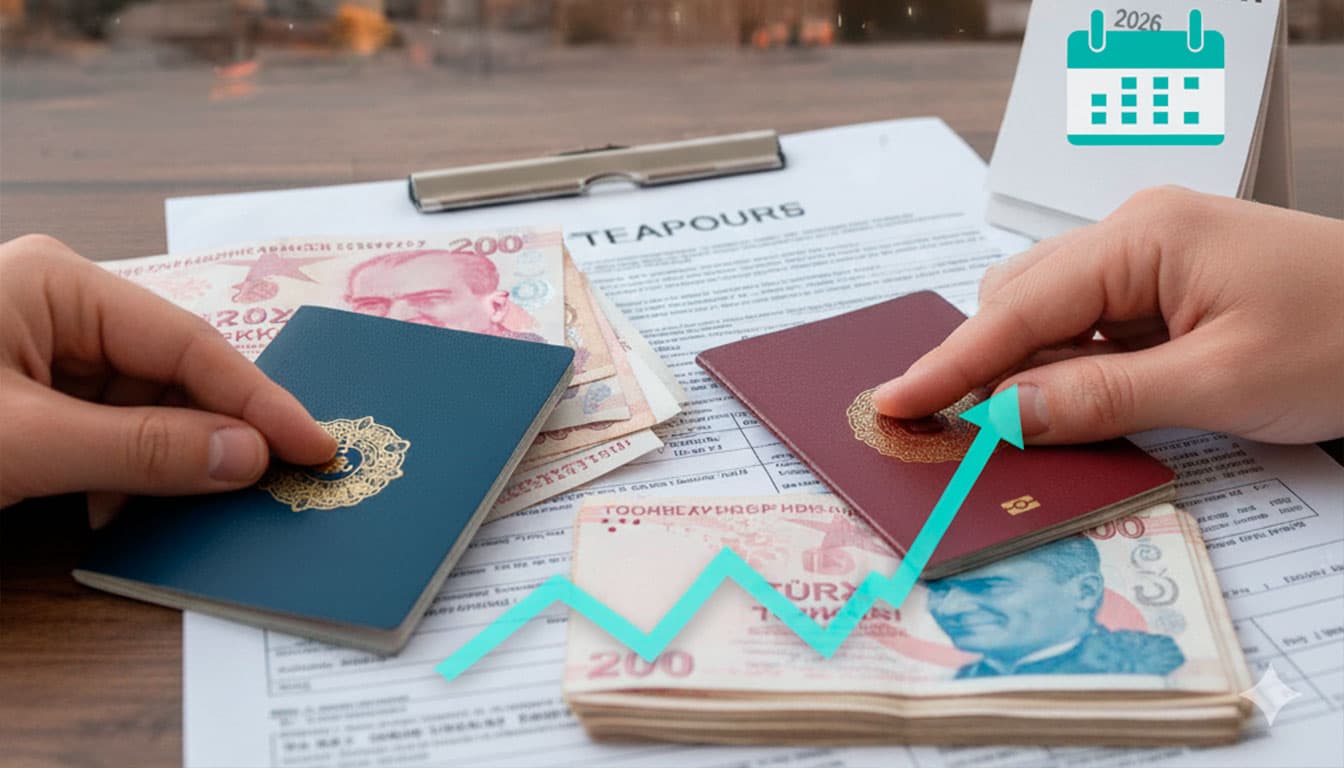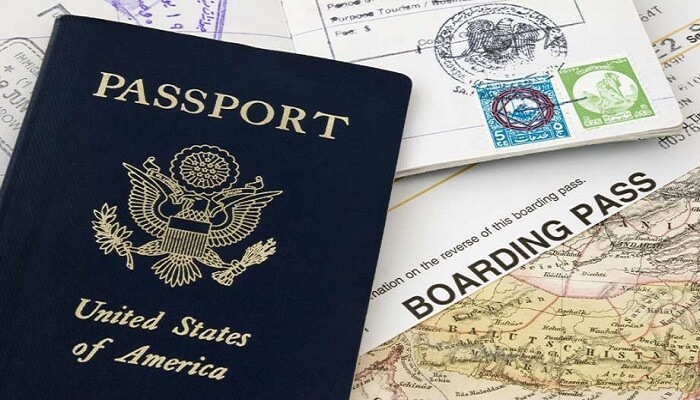
Deportation codes in Turkey. Refusal codes for a residence permit
Every year, millions of foreigners come to Turkey for various purposes. However, some of them face deportation (deportation) and even restrictive measures if they do not pay due attention to compliance with local legislation.
In the case of deportation (deportation), a specific restriction code may be indicated in the documents of the foreigner, which is determined based on the reasons for such a decision. This code may impose a ban on re-entry into the Republic of Turkey for a period of one month to five years, and in some cases even for an indefinite period of time.
What is a restriction code? And why is it posted?
A restriction code is a code that in some cases informs the foreigner, and in some cases indicates the reason for the ban or deportation. The reasons for setting the restriction codes differ from each other. Depending on the importance of the action taken, the duration of the restriction varies.
List and brief description of the restriction codes:
- V-68 (Residence permit with the permission of the Ministry)
- V-69 (Persons whose residence permit has been cancelled)
- V-70 (Fictitious marriage)
- V-71 (Foreigners who do not report a change of address and declare falsely)
- V-74 (Foreigners whose departure will be notified to ministries/governors)
- V-77 (non-Turkish applicants-Ahiska)
- V-84 (entry is subject to obtaining a residence permit within 10 days)
- V-87 (Temporary protection of voluntary repatriates)
- V-88 (Foreigners whose work permit has been revoked)
- V-89 (re-admitted aliens)
- V-91 (Foreigners under temporary protection are subject to departure from the country)
- V-92 (Foreigners under temporary protection with duplicate registration)
- V-137 (invited to leave Turkey)
- V-144 (released under 57-A)
- V-145 (return of volunteers)
- V-146 (Turkish passport with annotation)
- V-147 (spouse, Turkish citizen, with notes in the passport)
- V-148 (A person sheltering in a temporary accommodation facility)
- V-153 (AYM injunction against 3rd country)
- V-154 (Complaint to the administrative Court against the deportation order)
- V-155 (injunction of the European Court of Human Rights)
- V-156 (Attorney’s fee)
- V-157 (Rejection of applications for a residence permit)
- V-158 (cancellation of the identity card of a foreign representative/family member)
- V-159 (Those who come to our country to transfer to a third country)
- G-26 (Illegal organizational activity)
- G-34 (Fake)
- G-42 (Drug Crime)
- G-43 (Contraband)
- G-48 (Prostitution mediation and security)
- G-58 (murderous crimes)
- G-64 (Threat)
- G-65 (Theft)
- G-66 (Extortion Robbery)
- G-67 (Fraud)
- G-78 (Foreigners carrying infectious diseases)
- G-82 (Activities against national security)
- G-87 (Persons at risk of general security)
- Ç-101 (Visa, visa-free, residence permit, violation of work permit / entry ban for 3 months)
- Ç-102 (Visa, visa-free, residence permit, violation of work permit / entry ban for 6 months)
- Ç-103 (Visa, visa-free, residence permit, violation of work permit / entry ban for 1 year)
- Ç-104 (Visa, visa-free, residence permit, violation of work permit / entry ban for 2 years)
- Ç-105 (Visa, visa-free, residence permit, violation of work permit / entry ban for 5 years)
- Ç-113(Illegal entry and exit)
- Ç-114 (Foreigners who are being prosecuted)
- Ç-115 (Foreigners released from prison)
- Ç-116 (Foreigners who pose a threat to public morality and public health)
- Ç-117 (Illegal employees)
- Ç-118 (Persons whose residence permit has been cancelled)
- Ç-119 (Non-payment of fines for illegal immigrants)
- Ç-120 (Non-payment of a fine due to violation of a visa or residence permit)
- Ç-135 (Foreigners and persons violating the Law on International Protection)
- Ç-136 (Those who do not pay for travel expenses)
- Ç-137 (Foreigners are invited to leave)
- Ç-138 (INAD passenger)
- Ç-141 (considered inconvenient from the point of view of international security)
- Ç-149 (seemed undesirable from the point of view of public safety)
- Ç-150 (For those who try to log in with a fake document)
- Ç-151 (Immigrant smuggler / human trafficker)
- Ç-152 (Foreigners who are prohibited from entering the country as a precautionary measure)
- Ç-166 (Who does not justify his entry into a just cause/does not have financial means)
- Ç-167 (3-6 months, ban on entry into the country for 1 month for violators of a visa, residence permit, work permit)
- K (wanted for smuggling)
- N-82 (intelligence code)
- N-95 (Fine for violation of the entry ban)
- N-96 (Administrative penalty for not leaving the country within the prescribed period)
- N-97 (Administrative penalty for declaration of address)
- N-99 (Interpol code)
- N-119 (Administrative fine for working without a permit)
- N-120 (Violation of visa, residence permit, work permit, administrative fine)
- N-135 (Administrative fine for illegal entry or attempt)
- N-136 (expenses for business trips abroad)
- N-168 (Administrative fine for violation of three paragraphs of Article 102)
- N-169 (Administrative fine for non-fulfillment of administrative duties established by the Ministry)
- N-170 (Administrative fine in accordance with the Law on Offenses or other relevant laws)
- N-171 (Administrative fine in connection with non-fulfillment of specified obligations)
- N-172 (Travel expenses in connection with voluntary repatriation)
- O-100 (Refugees who have received asylum are forbidden to enter the hostel without neighbors)
- O-176 (3 years for foreigners whose request for international protection is assessed negatively)
- O-177 (5 years for foreigners whose request for international protection is assessed negatively)
Let’s look at some of them.
V Restriction codes
V-68 (Residence permit with the permission of the Ministry)
Obtaining a residence permit for foreigners with the V-68 code is possible only if approved by the Ministry. For these people, the process of obtaining a residence permit proceeds differently from the usual process and requires additional permission.
V-69 (Persons whose residence permit has been cancelled)
V-69 applies to those who have received a residence permit in Turkey and then cancelled if the rules of residence are not followed. For example; In cases where the documents required for residence are forged, the restriction code V-69 is established and the person is not issued a residence permit for 5 years.
V-70 (Fictitious marriage)
Foreigners who have entered into a fictitious marriage in order to obtain a residence permit in Turkey are prohibited from entering Turkey for up to 5 years with the imposition of a restrictive code V-70 on them in case of detection.
V-71 (Foreigners who could not be found at the address, did not report the change of address and declared falsely)
V-72 is a code assigned to foreigners who do not inform the relevant authorities by changing their address when obtaining a residence permit, or who live at an address other than the one they actually declared. This can be solved by an administrative application.
V-74 (Foreigners whose departure will be notified to ministries/governors)
V-74 is a restriction code imposed on foreigners who must notify the Ministry or the governorate of their departure before leaving Turkey. It can be removed by an administrative application or a lawsuit.
V-77 (non-Turkish applicants-Ahiska)
If, as a result of the necessary investigations, it becomes clear that applicants claiming to be Meskhetian Turks are not Meskhetians, a restriction code V-77 is established so that they cannot apply for the Meskhetian-Turkic language again.
V-84 (entry is subject to obtaining a residence permit within 10 days of şartlı geriş)
V-84 is issued if foreign citizens who have entered within 10 days of receiving a residence permit do not apply to foreign institutions for a residence permit within 10 days, and a temporary entry ban is applied.
V-87 (Temporary protection of voluntary repatriates)
V-87 is a restriction code imposed on foreigners who have temporary protection status in Turkey and voluntarily return to their country.
V-88 (Foreigners whose work permit has been revoked)
The V-88 is issued to foreigners who have a work permit but whose work permit has been revoked. Depending on the reasons for the cancellation of the work permit, a fine and a ban on entry to Turkey may also be imposed. This should be resolved with an annotated invitation, a new work permit application, or an administrative claim.
V-91 (Foreigners under temporary protection are subject to departure from the country)
V-91 is applied to foreigners who have temporary protection status and are subject to permission to leave the country. These persons must obtain permission from the relevant authorities before leaving the country. The code can be deleted administratively or in court.
V-92 (Foreigners under temporary protection with duplicate registration)
V-92 is a code for foreigners under temporary protection status, and dual registration is open. It is necessary to submit an administrative application to correct the double registration, if it was not corrected spontaneously.
V-137 (invited to leave Turkey)
Some foreigners who have been deported are not immediately forcibly deported, but are offered to leave Turkey, giving them 15 days. These persons must leave Turkey within 15 days. If they are still in Turkey after 15 days, the deportation decision will be applied immediately and an entry ban will be imposed. These people are assigned the code V-137.
V-144 (released under 57-A)
Some foreigners who have been ordered deported may not be able to return to their country, or if they return, that person’s life may be in danger. In these cases, the foreigner may be deported to a third country. If this is not possible, the foreigner will not be deported and a residence permit will be issued for humanitarian reasons. In this process, the person is assigned the code V-144. It can be deleted using the annotated visa method.
V-146 (Turkish passport with annotation)
In practice, marks are placed in the passports of some Turkish citizens against whom a criminal case has been initiated with the code V-146. In some cases, the passport applications of these people are not finalized. This situation is actually a violation of the law and it is necessary to go to court after an administrative application.
V-147 (spouse, Turkish citizen, with notes in the passport)
Sometimes the spouses of people in the situation we mentioned above also have an annotation of the V-147 code in their passports, and the same practice applies to these people. This situation represents a more serious violation of the law and should be referred to the court after filing an administrative claim.
V-148 (A person sheltering in a temporary accommodation facility)
Some foreigners may stay in temporary accommodation facilities, depending on the circumstances of the situation. In this case, these people are assigned the code V-148. This is an information code that can be deleted using the administrative application after the placement process is completed.
V-154 (Complaint to the administrative Court against the deportation order)
As we will discuss below, you can file a lawsuit against the deportation decision in the administrative court. In this case, the person is not deported. In this regard, the person may be assigned the code V-154. This is information code, not malicious code. The case is eventually deleted.
V-157 (Rejection of applications for a residence permit)
V-157 is the code for foreigners whose applications for a residence permit have been rejected. To cancel the code, you must apply for a legal visa or file a claim with the administrative court for refusal to grant a residence permit.
V-158 (cancellation of the identity card of a foreign representative/family member)
The identity cards of persons working in foreign missions or their family members may be cancelled for one reason or another. In this case, the relevant persons are assigned the restriction code V-158. Depending on the reason for the cancellation of the card, it may be resolved by an administrative application or a lawsuit.
V-159 (Those who come to our country to transfer to a third country)
V-159 is placed on foreigners arriving in the country in transit. This is an information code and does not harm a foreigner.
G Restriction codes
G-26 (Illegal organizational activity)
G-26 is a code for foreigners who participate in or are suspected of illegal activities of organizations. However, it can be removed in court.
G-34 (Fake)
G-34 is a code that is assigned to foreigners who commit or are suspected of committing fraudulent crimes. However, it can be removed in court.
G-42 (Drug Crime)
G-42 is a code for foreigners who commit or are suspected of committing drug—related crimes. However, it can be removed in court.
G-43 (Contraband)
G-42 is a code for foreigners who commit or are suspected of committing crimes related to smuggling. However, it can be removed in court.
G-48 (Prostitution mediation and security)
G-48 is a code assigned to foreigners who commit or are suspected of committing the crime of brokering prostitution and securing a place. However, it can be removed in court.
G-58 (Murder)
G-58 is the code for foreigners who commit murders or are suspected of committing murders. However, it can be removed in court.
G-64 (Threat)
G-64 is a code for foreigners who commit or are suspected of committing a threat—related crime. However, it can be removed in court.
G-65 (Theft)
G-65 is a code assigned to foreigners who commit or are suspected of committing theft. However, it can be removed in court.
G-66 (Extortion or robbery)
G-66 is a code assigned to foreigners who commit or are suspected of committing the crime of extortion (looting). However, it can be removed in court.
G-67 (Fraud)
G-67 is a code assigned to foreigners who commit or are suspected of committing fraudulent crimes. However, it can be removed in court.
G-78 (Foreigners carrying infectious diseases)
Foreigners with an infectious disease are prohibited from entering Turkey indefinitely by posting the restriction code G-78. However, if an erroneous diagnosis has been made or if the foreigner has received treatment and regained his health, the ban on entry to Turkey will be lifted as a result of submitting an application. You should consult with a lawyer about whether this application will be filed together with a lawsuit or an administrative application.
G-82 (Activities against national security)
G-82 is a code for foreigners who act or are suspected of participating in activities against national security. It is similar to the G-87 code mentioned below. It can be put on the basis of intelligence information like him. However, it can be removed in court.
G-87 (Persons at risk of general security)
According to some sources, such as the security service, the national intelligence Agency, a restrictive code G-87 may be imposed on foreigners, and these people are deported.
In practice, in most cases, this is due to the fact that intelligence reports are haphazard in nature and are not based on any specific evidence. In most cases, intelligence reports on a foreigner only on the basis of suspicion and informs the immigration administration about it. In these cases, it is possible to remove this code by filing a lawsuit.
In addition, the deportation of some people with the G-87 code has put their lives at risk in their own countries. In the case before the Constitutional Court, this procedure was canceled, and the person was not deported on the grounds that in the case of deportation of a person with the restriction code G-87, his life would be in danger, and the person would not pose a certain danger, a danger from the point of view of general security.
Ç Restriction Codes
Ç-101 (Visa, visa-free, residence permit, violation of work permit / entry ban for 3 months)
Ç-101; Issued to foreigners who violate the rules for issuing visas, visa-free entry, residence permit and work permit. In addition to these persons, a fine and a ban on entering the hostel are applied. It can be resolved through an annotated visa or a lawsuit, while the ban on entry to Turkey is lifted.
Ç-102 (Visa, visa-free, residence permit, violation of work permit / entry ban for 6 months)
Ç-102; Issued to foreigners who violate the rules for issuing visas, visa-free entry, residence permit and work permit. In addition to these persons, a fine and a ban on entering the hostel are applied. It can be resolved through an annotated visa or a lawsuit, while the ban on entry to Turkey is lifted.
Ç-103 (Visa, visa-free, residence permit, violation of work permit / entry ban for 1 year)
Ç-103; Issued to foreigners who violate the rules for issuing visas, visa-free entry, residence permit and work permit. In addition to these persons, a fine and a ban on entering the hostel are applied. It can be resolved through an annotated visa or a lawsuit, while the ban on entry to Turkey is lifted.
Ç-104 (Visa, visa-free, residence permit, violation of work permit / entry ban for 2 years)
Ç-104; Issued to foreigners who violate the rules for issuing visas, visa-free entry, residence permit and work permit. In addition to these persons, a fine and a ban on entering the hostel are applied. It can be resolved through an annotated visa or a lawsuit, while the ban on entry to Turkey is lifted.
Ç-105 (Visa, visa-free, residence permit, violation of work permit / entry ban for 5 years)
Ç-105; Issued to foreigners who violate the rules for issuing visas, visa-free entry, residence permit and work permit. In addition to these persons, a fine and a ban on entering the hostel are applied. It can be resolved through an annotated visa or a lawsuit, while the ban on entry to Turkey is lifted.
Ç-113 (Illegal entry and exit)
Foreigners who entered Turkey illegally are prohibited from entering Turkey for 2 years by setting the restriction code Ç-113, and an administrative fine is imposed. If an administrative fine is paid, entry to Turkey is impossible only for 2 years, and if an administrative fine is not paid, entry to Turkey is blocked for another 2 years.
Since an administrative fine is also an administrative action, there is a possibility of judicial protection. The claim must be filed in the right court at the right time.
Ç-114 (Foreigners who are being prosecuted)
If you are in Turkey in court, you will be banned from entering Turkey for 2 years, regardless of whether you are guilty or not. It can be solved administratively.
Ç-115 (Foreigners released from prison)
Those who have committed a crime and served their sentence in Turkey will be banned from entering Turkey for a period of one year. It can be solved administratively.
Ç-116 (Foreigners who pose a threat to public morality and public health)
Foreigners who act against public morality or threaten public health are prohibited from re-entering Turkey for 1 period.
Bars, nightclubs, etc. Regarding foreign women taken from entertainment establishments, the protocol of detention by law enforcement officers says that “it is considered that they arrived at the place for the purpose of prostitution” and only with this application the residence permit or work permit of foreign women is canceled, and foreigners can be deported for this reason.
Although there is no situation with prostitution, unfortunately, in practice we meet many such examples. We are getting positive results in the cases that we have opened on this issue.
Ç-117 (Illegal employees)
Foreigners working illegally in Turkey are prohibited from re-entering Turkey for 1 year by establishing the restriction code Ç-117. Administrative fines are also applied. This can be solved by the annotated visa method.
Ç-118 (Persons whose residence permit has been cancelled)
When it turns out that foreigners who have received a residence permit in Turkey use their residence permit for other purposes, they are prohibited from entering Turkey for 5 years using the restriction code Ç-118. Re-entry to Turkey is possible upon receipt of an annotated visa.
Ç-119 (Non-payment of fines for illegal immigrants)
If the administrative fine imposed on a foreigner working illegally in Turkey is not paid when leaving Turkey, the code Ç-119 is processed and they are prohibited from entering Turkey for 5 years. The situation can be resolved using the annotated visa method.
Ç-120 (Non-payment of a fine due to violation of a visa or residence permit)
If the administrative fine applied to foreigners who violated a visa or residence permit is not paid upon leaving Turkey, the restriction code Ç-120 is processed, prohibiting them from re-entering Turkey for 5 years. In fact, as we explained above, the sanctions that should be applied in case of violation of the visa regime have been diversified with the new regulations. Since visa violation is an extensive topic, we have written a separate article on this topic. We have given the link above.
Ç-135 (Foreigners and persons violating the Law on International Protection)
Administrative fines are imposed on foreigners and foreigners who violate the Law on International Protection. If this fine is not paid, they will be banned from entering Turkey for 5 years by setting the restriction code Ç-135. The code can be deleted after receiving an annotated visa.
Ç-136 (Those who do not pay for travel expenses)
If foreigners cannot cover their travel expenses during deportation, they are covered by the Republic of Turkey, and these expenses must be paid for re-entry by processing the restriction code Ç-136.
Ç-137 (Foreigners are invited to leave)
If foreigners who have been invited by the immigration administration to leave Turkey during certain periods do not invite Turkey during these periods, they are prohibited from entering Turkey for 5 years by processing the restriction code Ç-137. It is possible to re-enter Turkey with an annotated visa. In addition, it can be guaranteed that he will never leave Turkey by filing a lawsuit in the administrative court.
Ç-138 (INAD passenger)
Foreigners who are banned from entering Turkey may be banned from entering Turkey for up to 5 years by processing the restriction code Ç-138 if their situation is noticed when entering the country. Depending on the situation, legal proceedings may be required.
Ç-141 (A foreigner whose entry into Turkey is carried out with the permission of the Ministry)
§ 141, the restriction applied by the Immigration Administration to the passport data of an alien by the “MINISTRY OF INTERNAL Affairs”, in accordance with intelligence information received before or during deportation from Turkey, in connection with a violation of judicial or administrative legislation that he committed against Turkey in Turkey or abroad. To enter, you must obtain permission from the Ministry. If permission is not given, various remedies may be applied in accordance with the Ministry’s response.
However, as in the case of the N-82 code, in practice this permission is almost never given. This is the application of a ban on entry into the country. In this case, it is almost impossible for a foreigner to enter Turkey without filing a lawsuit and canceling the code.
Ç-150 (For those who try to log in with a fake document)
Ç-150 is a code that is assigned to foreigners who present false documents when entering Turkey. It can be removed through an annotated visa or, in some cases, through a court order.
Ç-151 (Immigrant smuggler / human trafficker)
Ç-151 is a code assigned to foreigners who commit or are suspected of committing a crime related to the smuggling of migrants. However, it can be removed in court.
Ç-152 (Foreigners who are prohibited from entering the country as a precautionary measure)
Ç-152 is placed on foreigners who are banned from entering the country as a precautionary measure (just in case). This code can be removed by a lawsuit or a legal visa.
Ç-166 (Who does not justify his entry into a just cause/does not have financial means)
Ç-166 is a code assigned to foreigners who do not justify the reason for their arrival when obtaining a visa or entering the country or do not have sufficient financial resources during their stay, even if they have them. It can be removed from an annotated visa.
K Restriction Codes
K (wanted for smuggling)
The restriction code K is usually set for foreigners who commit crimes related to smuggling and for whom an arrest warrant has been issued. This code cannot give a ban on entry. It can even be installed in order to prevent travel abroad.
N Restriction codes
N-82 (A foreigner whose entry is carried out with prior permission)
In the restriction code N-82, a foreigner must obtain a preliminary permit to enter Turkey. However, this permission is almost never allowed in practice. This is the application of a ban on entry into the country. In this case, the foreigner cannot enter Turkey without filing a lawsuit and canceling the code.
N-99 (Interpol code)
The Interpol Restriction Code N-99 is established for persons who have an Interpol search bulletin issued in their own country or in a country that is part of the Interpol system. This type of code can also cause a ban on entry to Turkey. The right to impose an entry ban remains with the State. Although this is, in fact, a serious type of code, we have removed a lot.
O Restriction codes
0-100 (Refugees who have received asylum are forbidden to enter the hostel without neighbors)
O 100 is a restriction code for asylum seekers who are not allowed to enter an unidentified dormitory. Upon deportation from Turkey, the O-100 restriction code applies to foreigners who are prohibited from entering the country and who are not located at the address they stated when contacting the provincial offices of the migration directorate in Turkey.
O-176 (3 years for foreigners whose request for international protection is assessed negatively)
Foreigners applying for international protection are assessed for compliance with this status. If the evaluation result is not suitable, this code is set. A lawsuit may be filed after an administrative application.
O-177 (5 years for foreigners whose request for international protection is assessed negatively)
Foreigners applying for international protection are assessed for compliance with this status. If the evaluation result is not suitable, this code is set. A lawsuit may be filed after an administrative application.
How can I remove foreign restriction codes?
We explained above that for foreigners, for various reasons, different restriction codes are set, and, accordingly, the timing of re-entry into Turkey varies. To remove the restriction code, it can be removed by an administrative application or a legal invitation in some cases, as well as by an administrative court. From the point of view of the roadmap, it is also very important that you work with a lawyer in this regard. Because each code contains a different legal path.
Administrative action to remove the restriction code
Persons against whom a decision on deportation has been made and the restriction code has been processed can achieve the cancellation of the decision of the restriction code by filing a claim with the administrative court during the period of consideration of the claim. According to each restriction code, it will be necessary to take different actions and defend the case.
If there is a foreigner who is subject to a prohibitive code and a decision on deportation has been made, then it is most logical to sue this foreigner as soon as possible to overturn the decision on deportation. If an annulment action is filed against the deportation decision, the result of the annulment action is expected in order for the person to be deported. In other words, if a lawsuit is filed, the foreigner will not be deported until the end of the trial.
important! However, it is important to open a case at the right time and work with a competent and experienced lawyer in the field of foreign law. Some firms try to provide legal services under the name of a foreign consulting firm. However, representation in court is a service that only lawyers can provide.
An annotated invitation statement and an administrative statement on the cancellation of the restriction code
In some rare cases, the restriction is sufficient to delete a foreign code only within the framework of an administrative case. The lawyer must assess in which cases an administrative application will be submitted.
A valid visa invitation may be required to lift the ban on foreigners entering Turkey. Visas that include expressions such as medical treatment, family reunification, education, work, official duties, tourism in terms of the purpose of the visa are called legal visas. An annotated visa allows foreigners who are banned from entering Turkey to enter the country legally. The process of obtaining an annotated visa is usually completed within 1 month.
Frequently Asked Questions about deportation in Turkey
No. If a foreigner, against whom a deportation order has been made, files a lawsuit in an administrative court, the deportation order is not enforced until the end of the legal process. If the case is won, the decision is completely annulled.
Yes. If a foreigner has no other ban on entering Turkey, entry is possible after the code prohibiting entry has been removed.
The legal process against the restriction code can take about 1 year. A decision on the deferral of execution is usually made within 20-30 days.
Visas that include expressions such as treatment, family reunification, education, work, official duties, tourism as part of the visa purpose are called legitimate visas. An annotated visa allows foreigners, who are banned from entering Turkey, to enter the country on a lawful basis.
A restriction code is a code that in some cases provides information about a foreigner, and in other cases indicates the reason for the ban on entry or deportation of the foreigner.

